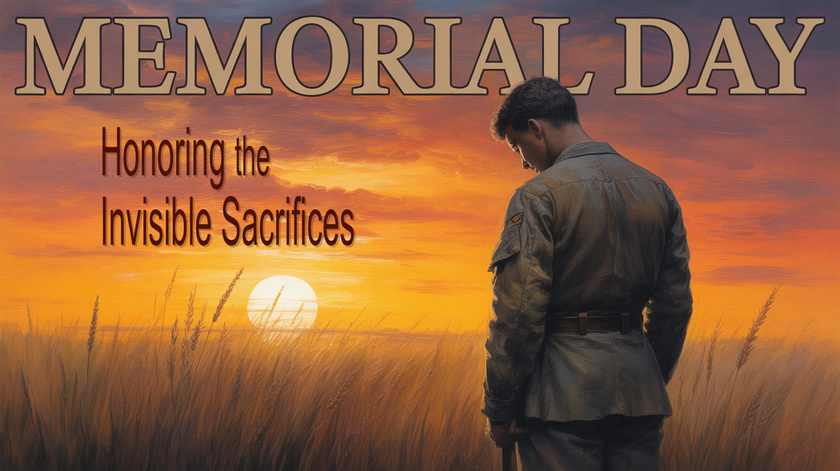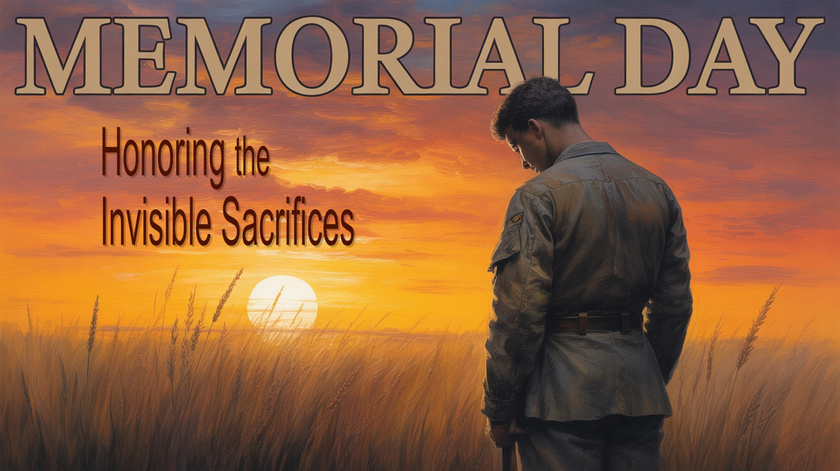
As we honor the men and women who have given their lives in military service this Memorial Day, we often focus on the visible sacrifices: the battles fought, the bravery displayed in combat, and the ultimate price paid with death. However, there are sacrifices that often go unnoticed, those that are felt long after the uniforms are put away, those that exist in the quiet aftermath of war: the mental and emotional toll on soldiers.
For many soldiers, the impact of their service does not end when they return home. While some are physically wounded, others carry psychological scars that may never fully heal. These wounds are not visible to the eye, but they are felt deeply—affecting every aspect of life, from relationships to career choices, to the personal sense of self.
The emotional and mental struggles faced by veterans often go unspoken. Issues like Post-Traumatic Stress Disorder (PTSD), anxiety, depression, and survivor's guilt can haunt them for years after the war has ended. While physical injuries can often be treated or managed, the invisible wounds are far harder to address. The pain of loss, trauma, and the moral injuries sustained in combat don’t always show up on medical charts but are carried within.
Many soldiers come home, not only grieving the comrades they lost on the battlefield but also burdened with the weight of the actions they were forced to take in the name of war. The emotional turmoil of witnessing violence, the confusion of being asked to do things that conflict with their moral compass, and the isolation that can come from feeling misunderstood by those who have not shared their experiences, can lead to an overwhelming sense of alienation.
For families of fallen soldiers, the grief is layered. While they mourn the loss of a loved one, they also often wrestle with the emotional aftermath of their service. The long-term impacts on mental health are felt across generations, as the families of soldiers who return physically and mentally scarred deal with the ripple effects of trauma. The strain on marriages, parent-child relationships, and community ties can be immense, yet the support and understanding for these issues are frequently lacking.
Memorial Day is not just a time to remember the men who died in combat—it is also an opportunity to acknowledge the immense emotional and mental cost of war that continues to impact those who survive. It is a reminder that the invisible wounds of battle—those that affect the mind and spirit—deserve as much attention and compassion as the visible ones.
This Memorial Day, as we honor those who have fallen, let us also remember those who carry the unseen scars of war. Let us stand with those who have borne the emotional and psychological burdens of military service, offering our support, empathy, and a commitment to their long-term healing. After all, the sacrifice of our soldiers is not only paid on the battlefield—it is carried on long after the guns fall silent.



















